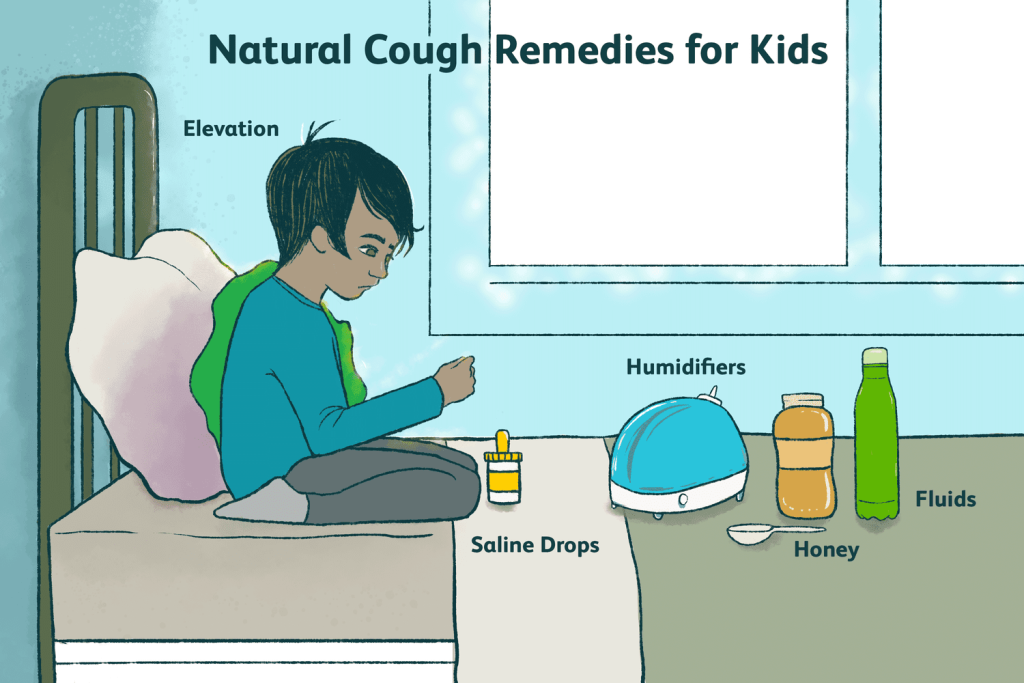Coughing can be a bothersome symptom caused by infections, allergies, or environmental irritants. Fortunately, many natural remedies can help alleviate a cough, promoting comfort and recovery. This article explores the best home treatments, their benefits, and how to use them effectively.

What Causes a Cough?
Coughing is a reflex to clear irritants, mucus, or pathogens from the respiratory tract. Common causes include:
- Infections: Viral or bacterial infections, such as colds or flu.
- Allergies: Reactions to pollen, dust, or other allergens.
- Acid Reflux: Stomach acid irritating the throat.
- Environmental Irritants: Smoke, pollution, or chemicals.
Identifying the cause can help in choosing the most effective remedy.
Top 12 Natural Remedies to Treat a Cough
1. Honey: Nature’s Sweet Remedy
Honey is renowned for its soothing properties and effectiveness in suppressing coughs. Studies suggest honey works as well as or better than over-the-counter cough suppressants like dextromethorphan.
How to Use:
- Take 1–2 teaspoons of honey directly.
- Mix honey with warm water or herbal tea for added benefits.
2. Ginger: Anti-Inflammatory Powerhouse
Ginger’s anti-inflammatory properties can soothe a dry or asthmatic cough while easing nausea and pain.
How to Use:
- Steep fresh ginger slices in hot water for tea.
- Add grated ginger to meals or drinks.
Caution: Overconsumption may cause heartburn or stomach upset.
3. Warm Fluids for Comfort
Drinking warm liquids can alleviate throat irritation, reduce mucus, and provide symptomatic relief.
Recommended Drinks:
- Herbal teas like chamomile or peppermint.
- Warm broths.
- Decaffeinated black tea or warm water with lemon.
4. Steam Therapy
Inhaling steam can help loosen mucus and alleviate wet coughs.
How to Try:
- Take a hot shower and inhale the steam.
- Create a steam bowl by adding hot water and essential oils like eucalyptus or rosemary.
5. Marshmallow Root
This herb, rich in mucilage, coats the throat and eases irritation from coughing.
How to Use:
- Brew marshmallow root tea by steeping the dried herb in hot water for 10 minutes.
- Look for syrups containing marshmallow root.
Note: Drink plenty of fluids to avoid potential stomach upset.
6. Saltwater Gargle
A simple saltwater gargle can help loosen mucus and soothe throat irritation.
How to Prepare:
- Mix ½ teaspoon of salt into a cup of warm water.
- Gargle and spit out the solution. Repeat as needed.
Avoid: This method is not recommended for young children or those with high blood pressure.
7. Bromelain from Pineapple
Bromelain, an enzyme found in pineapples, has anti-inflammatory and mucolytic properties that may reduce mucus and ease coughing.
How to Use:
- Consume fresh pineapple juice.
- Consider bromelain supplements after consulting a doctor.
8. Thyme: Herbal Relief
Thyme has been used traditionally to treat coughs, bronchitis, and respiratory issues.
How to Use:
- Brew thyme tea by steeping dried leaves in hot water.
- Use syrups containing thyme extract.
9. Dietary Adjustments for Acid Reflux
If acid reflux triggers your cough, avoiding reflux-inducing foods can help.
Common Triggers to Avoid:
- Fried and fatty foods.
- Caffeine, alcohol, and chocolate.
- Spicy or citrus-based foods.
10. Slippery Elm
Similar to marshmallow root, slippery elm contains mucilage that soothes throat irritation.
How to Use:
- Brew tea with slippery elm powder or dried bark.
Caution: It may interfere with medication absorption. Consult a healthcare provider.
11. N-Acetylcysteine (NAC)
This supplement reduces mucus buildup, especially in chronic bronchitis cases.
Dosage:
- 600–1,200 mg daily as recommended by a doctor.
Side Effects: May include hives or breathing difficulties.
12. Probiotics for Immune Support
Probiotics can enhance your immune response, helping fight infections that cause coughing.
Sources:
- Yogurt, kimchi, sauerkraut, and miso soup.
- Probiotic supplements for higher bacterial diversity.
Preventive Tips to Avoid Coughs
- Stay Hydrated: Drink plenty of fluids to keep mucus thin.
- Maintain Hygiene: Wash hands regularly to reduce exposure to pathogens.
- Avoid Triggers: Identify and avoid allergens or irritants.
- Boost Immunity: Incorporate immune-boosting foods like citrus fruits and garlic.
When to See a Doctor
Consult a healthcare provider if your cough:
- Persists for more than three weeks.
- Produces green, yellow, or bloody mucus.
- Is accompanied by high fever, chills, or difficulty breathing.
Frequently Asked Questions (FAQs)
1. What is the fastest way to cure a cough naturally?
There’s no immediate cure, but remedies like honey, ginger tea, and steam can provide quick relief for symptoms.
2. How can I suppress a nighttime cough?
Use a humidifier, drink warm fluids, and elevate your head while sleeping to reduce coughing at night.
3. Are natural remedies safe for children?
Many remedies like honey are safe for children over one year old. Consult a pediatrician for other options.
4. Can diet changes help with a cough?
Yes, especially for acid reflux-related coughs. Avoiding spicy, fatty, or acidic foods can help.
5. Is it okay to combine natural remedies with medications?
Some herbs and supplements may interact with medications. Always consult a healthcare provider before combining treatments.




